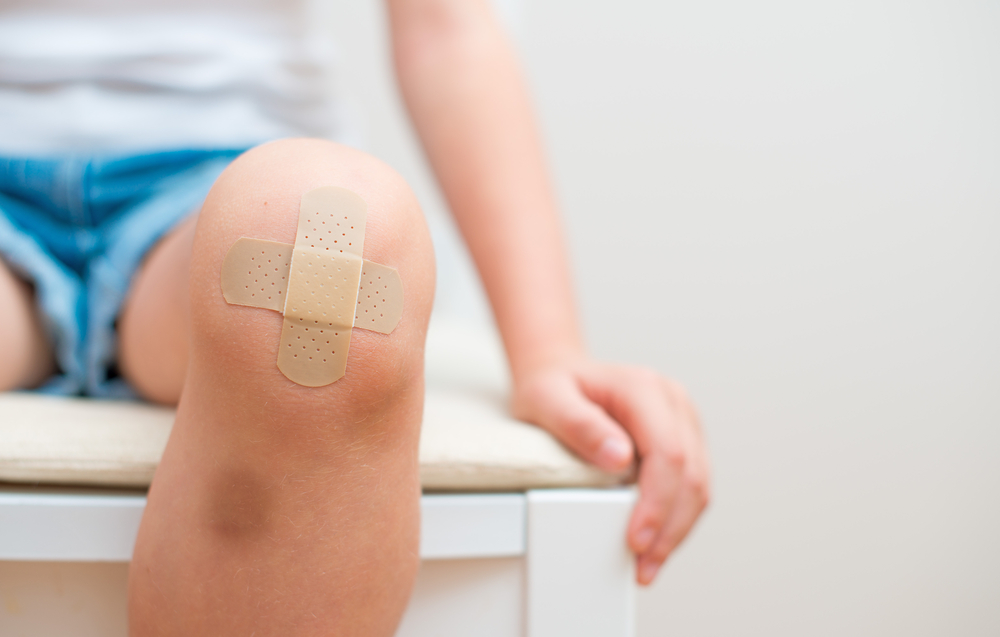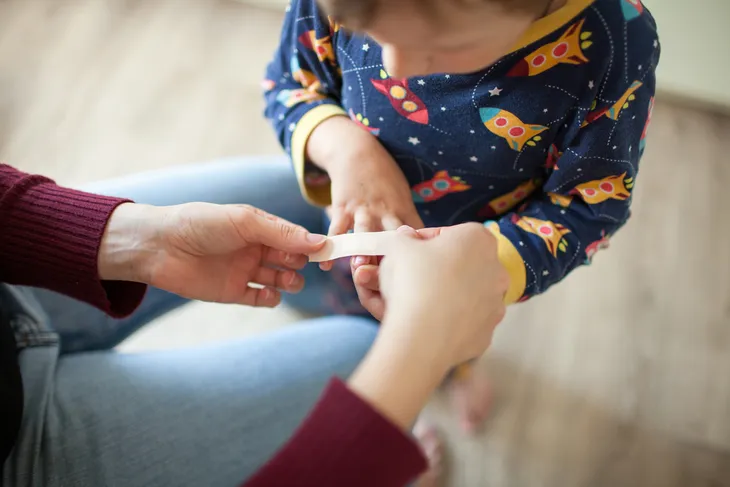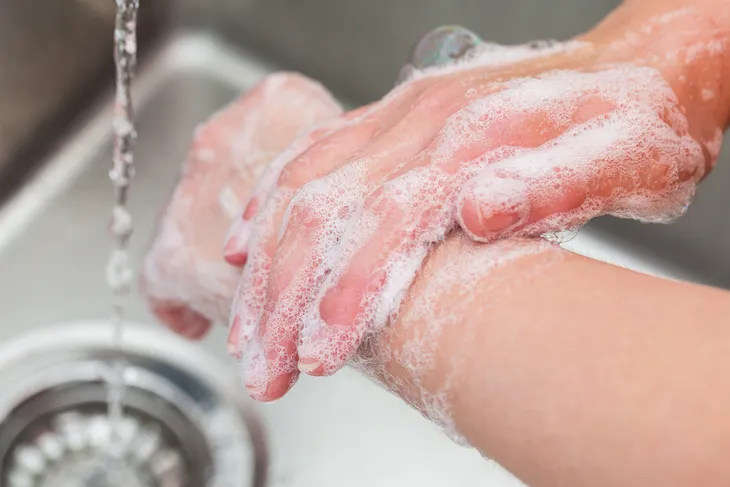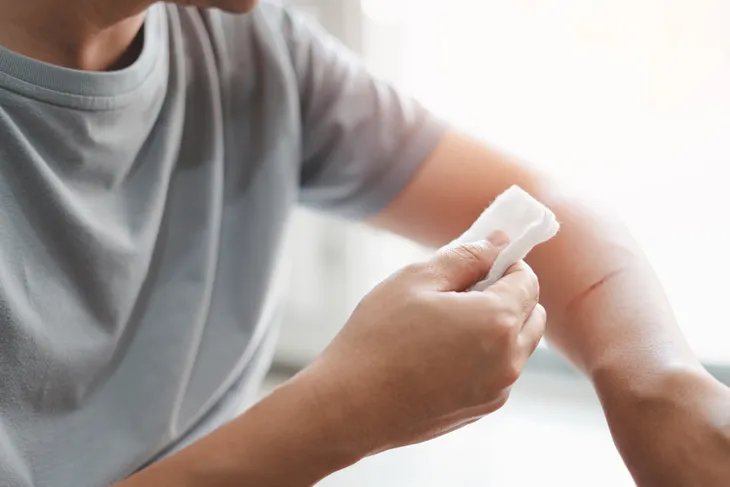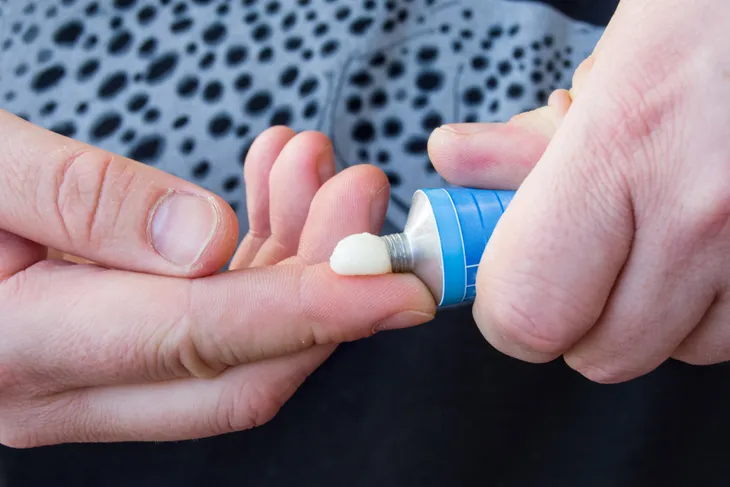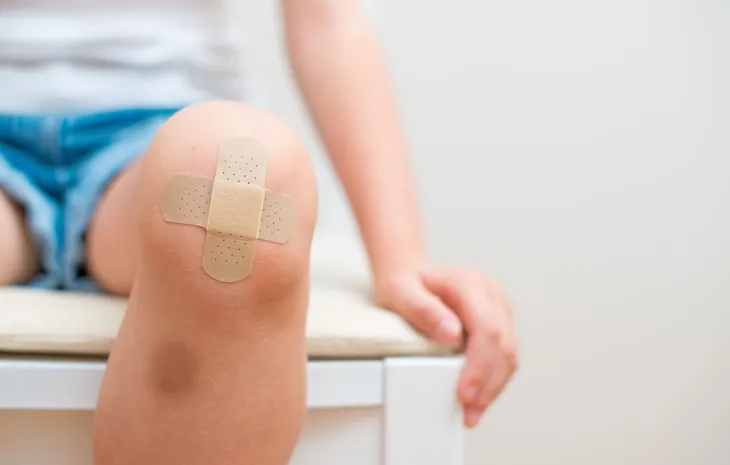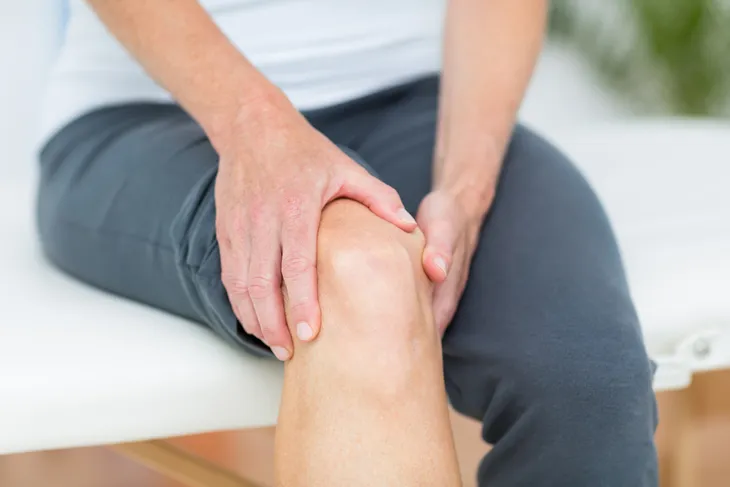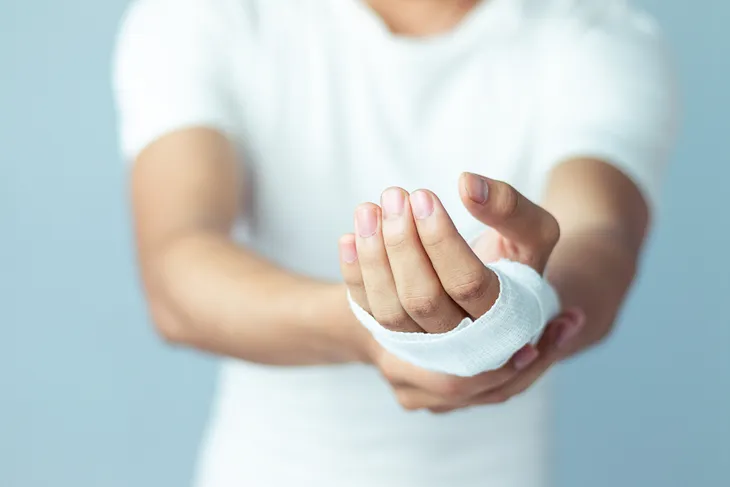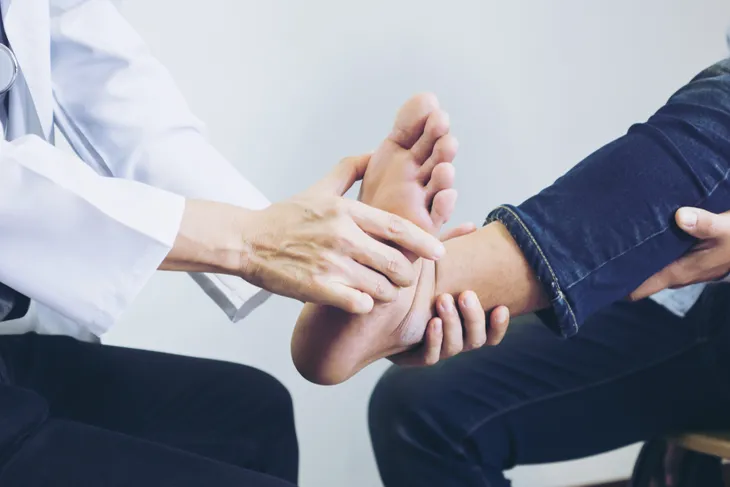Many of us have experienced at least one cut, scrape, or minor wound. Whether it be from a paper cut or tripping and falling. Wounds do happen but thankfully it’s usually easy to take care of them! That said, if you have a deep wound or if the wound is bleeding heavily, or has debris lodged in it, make sure you seek emergency care!
Minor wounds can be treated at home with a few simple steps. In this article, we take a look at the different types of open wounds, how to treat them at home, and possible complications you should know!
What Are the Different Types of Open Wounds?
Before we dive into how to treat wounds, it’s important to know that there are different types of open wounds. The first being an abrasion which happens when your skin scrapes against a rough surface. This type of wound doesn’t usually cause a lot of bleeding but still needs to be cleaned.
Next, a laceration is a tearing in the skin. These are commonly caused by tools or knives and often result in extensive bleeding. Further, a puncture wound is a small hole caused by a nail or similar object. This type of wound may not bleed a lot but it can be deep, which may damage your internal organs.
Finally, you may also experience an avulsion. Healthline describes it as, “…a partial or complete tearing away of skin and the tissue beneath.” In most cases, this type of wound will require emergency care immediately.
How to Treat Cuts, Scrapes, and Minor wounds
Minor cuts and scrapes happen to everyone. The smallest act like slicing fruit can cut your finger. Even tripping on the sidewalk can cause you to scrape your knee. Thankfully, treating minor wounds at home is easy to do! Let’s take a look at the steps you should take to help treat cuts, scrapes, and minor wounds.
Clean the Wound
The first step in treating a cut, scrape, or minor open wound is to clean the area. First, make sure you effectively wash your hands to prevent any germs from getting in the area.
Next, rinse the wound with cool water. This will help remove any dirt or small debris. WebMD says to, “hold the area under running water or pour clean water over it from a cup.”
Try to Stop the Bleeding
Now that the wound is clean, you need to try and stop the bleeding. Thankfully, small cuts usually stop on their own but if the area is bleeding more heavily you’ll need to help stop the bleeding.
To do this, simply apply gently yet firm pressure using a clean cloth (or gauze) over the wound site. Continue to apply pressure and if blood leaches through the cloth, add more on top, do not remove the soaked cloth, and continue applying pressure. If this doesn’t stop the bleeding within 20-minutes, seek emergency care immediately.
Apply an Antibiotic Ointment
The next step to cleaning a minor wound is to “apply a thin layer of an antibiotic ointment or petroleum jelly,” explains Mayo Clinic. The purpose of the ointment is to help keep the wound moist and in turn, help prevent scarring. Antibiotic ointment can also help prevent infection.
It’s worth noting, some ointments contain ingredients that can cause a mild rash for some individuals. If this happens, simply discontinue use.
Cover the Wound
After cleaning the wound and once the bleeding has stopped, it’s best to cover the area with a clean bandage. You can also use a gauze pad and secure it in place with tape.
Covering the wound will help prevent the wound from reopening and can help prevent infection. Be sure to change the bandage every day or several times a day if it gets dirty.
How Long Does a Minor Wound Take to Heal?
After taking care of the minor wound, it should heal within a few days. The wound will form a scab which will help protect the area from germs and dirt. Keep in mind once the scab forms, you won’t have to use a bandage anymore.
It’s also worth noting, a scab can make the area itchy but make sure you resist the urge to scratch or pick at the area. When the wound is fully healed the scab will naturally fall off on its own.
Keep an Eye Out for Signs of an Infection
While you wait for a scab to form, it’s important to keep an eye out for signs of an infection. Infection can happen when the wound doesn’t heal, or if the area isn’t kept clean.
If you notice signs of infection, you should speak with your doctor immediately. WebMD notes, common signs of an infection include:
- Pus or drainage from the cut
- Redness
- Swelling
- Warmth
- Increased pain
- Red streaks around the wound
- Fever
 Prostock-studio / Shutterstock
Prostock-studio / ShutterstockPossible Complications of an Open Wound
The biggest complication of an open wound is the risk of infection. As stated above, if you notice any signs of infection call your doctor right away!
Other complications of an open wound include significant bleeding. This can happen if the wound is deep or if you’ve suffered a puncture wound. If you’re experiencing significant bleeding, seek emergency care immediately.
When to See a Doctor
The good news is most minor open wounds will heal within a few days, especially if you take the proper steps to treat them. That said, wounds deeper than 1/2-inch or wounds that have significant bleeding or bleeding that doesn’t stop after 20-minutes should be seen by a doctor.
If your wound is deep, dirty, or caused by a rusty metal object (such as a nail), you may need a tetanus shot. Call your doctor to confirm your tetanus shot is up to date and if not you’ll need to receive one.
